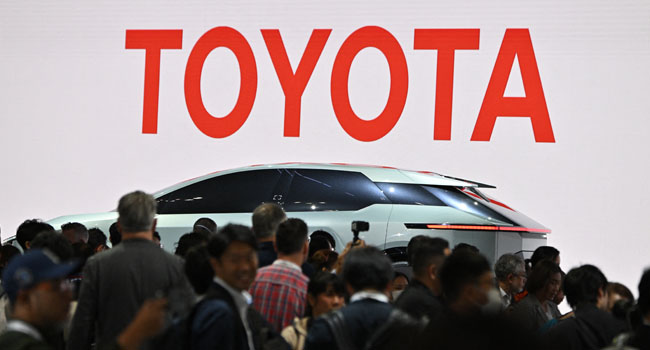Toyota lowered its annual net profit forecast to 2.66 trillion yen ($18.06 billion) on Thursday, attributing the downward revision to ongoing challenges posed by U.S. tariffs and market uncertainties. The automaker’s shares dipped 0.6% in Tokyo trading following the announcement, reflecting investor concerns over strained trade dynamics between Japan and the United States.
In a statement, the company cited reduced operating income and “the impact of U.S. tariffs and other factors” as key reasons for adjusting its financial outlook. The decision comes months after the Trump administration imposed a 25% tariff on Japanese vehicle imports in April, amplifying pressures on Japan’s automotive sector, which contributes significantly to the nation’s economy. While the U.S. and Japan reached a tentative trade agreement in July to lower the tariff to 15%, the timing of its implementation remains unclear—creating lingering ambiguity for manufacturers.
Compounding the uncertainty is debate over whether the proposed 15% rate would replace or compound existing levies. Prior to the tariff hike, Japanese automakers already faced a 2.5% duty on U.S.-bound exports. If the new rate is applied additively, the effective tariff would remain at 27.5%, further squeezing profit margins. “Confusion persists around how these changes will be structured,” said industry analysts, noting that unresolved details risk prolonging financial strain.
Toyota’s latest earnings underscore the tariff’s immediate impact. Between April and June, the company reported a 3.5% rise in revenue compared to the same period last year, reaching 10.55 trillion yen ($71.7 billion). However, net income plummeted by 36% to 1.31 trillion yen ($8.9 billion), highlighting the disproportionate effect of rising trade costs on profitability. The automotive giant also flagged weaker performance in key markets, including China and Southeast Asia, though U.S. sales volumes remained stable.
Japan’s auto industry, which accounts for nearly 20% of the country’s total exports, has lobbied for clarity on trade terms amid escalating global protectionism. The sector’s reliance on U.S. demand makes it particularly vulnerable to policy shifts, with Toyota’s revised forecast signaling wider concerns about long-term competitiveness. Analysts warn that prolonged tariff disputes could incentivize manufacturers to relocate production or pass costs to consumers, impacting pricing and employment.
As trade negotiators work to finalize terms, stakeholders emphasize the need for predictable policies to stabilize supply chains and investment. For now, Toyota’s adjusted outlook serves as a barometer of the economic ripples triggered by geopolitical trade strategies—and a reminder of the delicate balance global automakers must strike in an era of shifting alliances.
